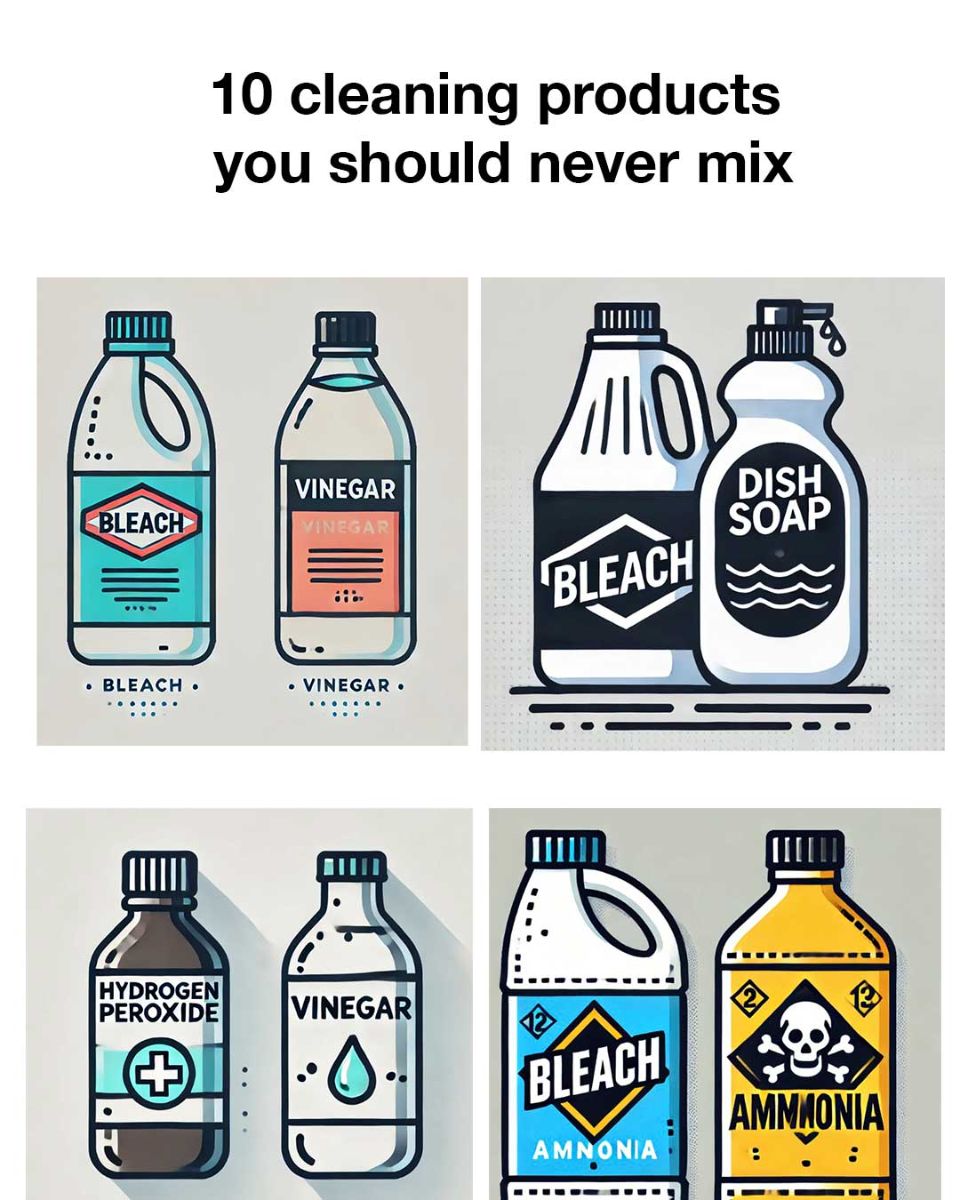10 cleaning products you should never mix and why
McKayla Davis
Contributing Writer
Print this recipe
The world of cleaning products can be perplexing, especially with the array of choices available in the market. However, while you may be tempted to combine different products to achieve a super-clean house, some mixtures can be highly dangerous. Understanding these combinations is essential for the safety of everyone in your household.
Reading the rest of this article is crucial, as it will unveil vital information that could protect you from potential hazards. In the following sections, we will cover specific pairings of cleaning products that should never, under any circumstances, be mixed. Your safety, and that of your loved ones, could depend on this knowledge.
1. Bleach and Ammonia
Mixing bleach and ammonia produces toxic chloramine vapors, which can cause respiratory damage and eye irritation. High exposure can lead to severe health problems.
2. Bleach and Vinegar
Combining bleach with vinegar releases chlorine gas, a toxic compound that can lead to coughing, breathing difficulties, and burning sensations in the eyes, nose, and throat.
3. Bleach and Rubbing Alcohol
Mixing these two substances can produce chloroform, a chemical compound that is harmful when inhaled, ingested, or absorbed through the skin. Prolonged exposure can lead to dizziness, nausea, and even unconsciousness.
4. Hydrogen Peroxide and Vinegar
When hydrogen peroxide and vinegar are combined, they create peracetic acid. This acid is highly corrosive and can irritate the respiratory system, eyes, and skin.
5. Baking Soda and Vinegar
Although often considered harmless, mixing baking soda and vinegar doesn’t result in a toxic compound but produces a lot of foam and can lead to container explosions due to the rapid build-up of carbon dioxide gas.
6. Drain Cleaners of Different Brands

